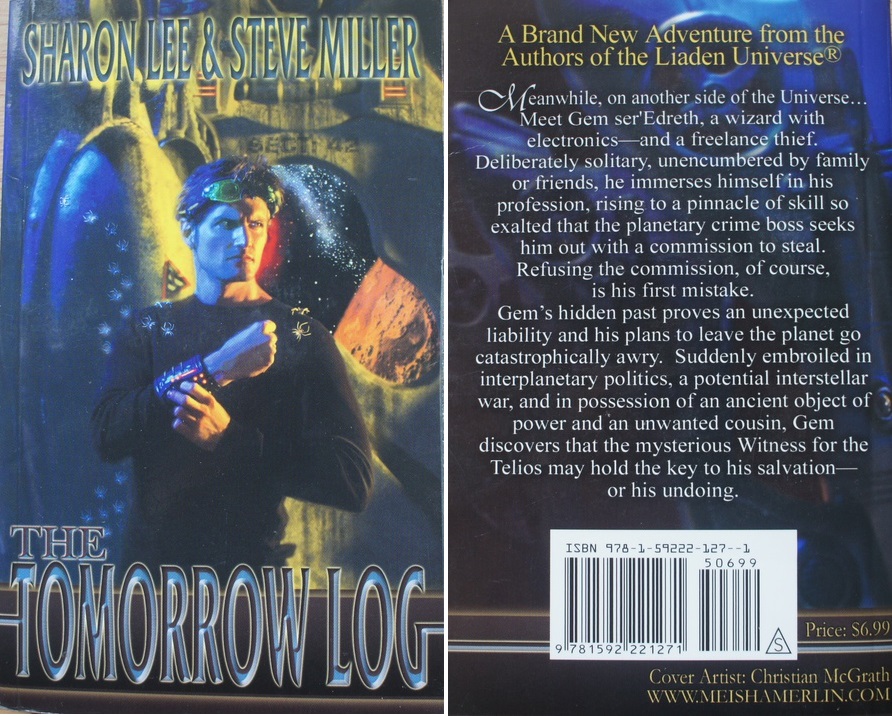
I really enjoyed nearly all of this book, but the climax of the book soured much of it for me. I have not read the third book, the Flames of Shadam Koresh, and I am sure once I read it I will change my mind, but it feels like the ending for this book was pure artifice and that everything should have ended in the climax here.
I’ll dive into what aggravated me. In the last ¼th of the book, one of the major antagonists suddenly was revealed to have an unstoppable super power that no one could defend against, until suddenly someone could defend against it. It felt like a lazy way to get everything to happen that the author needed to happen for the final scene, as if characters being driven by their actual motivations / flaws weren’t enough to get exactly what the author wanted, so they just pulled the strings, moving the puppets around jerkily such that it becomes clear they’re puppets and not characters. That breaking of suspension of disbelief really hurt the ending for me.
Phew, now with that aside, the first ¾ of the book were on balance pretty good, although I do admit to enjoying Atiana and Nikandr’s chapters more than Nasim. I found the writing and point of view more engaging. I did have a problem with the sheer amount of twists, turns, betrayals, and reversals. The first third of the book had some very well done plot twists, but after that the density seems to just increase, and even though well done, simply due to the density of them, they just become tired. So when something dramatic and unexpected happens in the climax of the book, I didn’t go “WOAH WHAAAAAAAT HOLY CRAP”, I thought “Huuuuh. Neat. Well, I bet something will undo what just happened within 20 pages.” There is also a problem with the protagonists implementing straightforward and reactive plans, while the antagonists are the masterminds with plans that have wheels spinning within wheels. As a result, anything the protagonists do is usually either “part of the villain’s plan,” or reacting to something irrelevant and so anything they achieve will be either undone or rendered irrelevant within 50 pages. As a result, the investment you have in seeing characters succeed is lessened, as it’s like Charlie Brown and the football. You just know that little girl is going to pull the football away and he’s going to stumble and fall.
And yet, I kept reading, and grumbling aside, enjoyed what I read. Putting aside the plot, the amazing worldbuilding was still there, and the character development was also very well done. Nearly every Duchy character we saw in the first book has changed drastically in the five years since the Winds of Khalakovo, and in ways that are believable, logical, and true to the characters’ nature. That feels rare to me, and to see it done so well was really great.
The magical metaphysics were still unclear to me, as I am still not clear whether there is any clear explanation for all the various the times a character arbitrarily cannot summon a hezhan when it would be very useful to do so. And while it is unclear how the Al-Aquim can do seemingly unique magic, their status as the Al-Aquim kinda grants them a pass!
Oh, and the glossary – it froze my kindle with its awesomeness! Once I got it rebooted, it was great to have all the terms in one place, not because I needed to look up any of them (again, Beaulieu is great with providing enough context to understand the functional use of a term, letting you build connotations from the sound of the word and its associations), but just to glory in it all.
One thing I really liked about the worldbuilding in the first book was the the cultural bent of the Cyrillic-feeling Duchy relative to the more Arabic Aramahn and the Maharrat cultures. The Straits of Galahesh does one better by throwing in Yrstanla’s Turkish-inspired culture, and seeing the geopolitical counterbalance between the Grand Duchy’s internal struggles and the external struggle with Yrstanla was really great.
For now though, as much as I enjoyed the first two books, I will take a breather to read some lighter fare, and then dive into the Flames of Shadam Koresh after the weekend.
COVER ART REVIEW: I definitely checked this out before reading the book, and gotta say, this kind of thing happens a lot in this book! I like the green coat and the walrus-bone powder shells on the bandolier, and the composition is great, but I wish the background colors were more muted. The jumper’s hair, eyebrows, and mustache-goatee in combination also made me snort.







 *(I couldn’t find a back cover, so I took the official description I could find and pasted it on black.)
*(I couldn’t find a back cover, so I took the official description I could find and pasted it on black.)